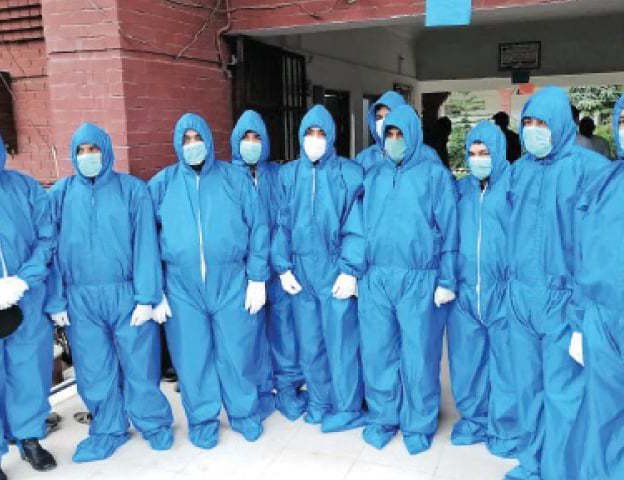
The COVID-19 has been spreading over the past four months affecting every country across the world. The frontline workers who provide an essential service are the backbone to the COVID-19 response, yet theyare at greater risk of contracting the virus.
These frontline workers include physicians, nurses, paramedics, ambulance drivers, security personnel, air and ship crews, humanitarian staff, refugee/internally displaced incentive workers, community healthcare volunteers, essential workers, journalistsand social workers.
The World Health Organization (WHO) estimated that healthcare workers were up to 32 times more likely to beinfected with Ebola than the general population.High rates of infection during Ebola were largely driven by insufficient or incorrect use of personal protective equipment (PPE), in addition to the contact with unrecognized infected patients.
Humanitarian staff and incentive workers have minimal protection and exposed to personal danger in any disaster response including the COVID-19.They face additional political, legal and security risks in the refuges and internally displaced camps.The freedom of the press and the safety of the journalists have been a concern in different parts of the world. Female frontline workers face additional risks due to pre-existing gender norms, roles and power dynamics in society.
Further frontline workers get physically exhausted and mentally stressed from working conditions, staff shortages, poor diet and long shifts. This would lead to weakened immune system susceptible to contamination and illness. Frontline workers are also at increased risk of disgrace and stigma from their community members for their proximity to infection and fears of transmitting.
The COVID-19 is on the rise and there are uncertainties both on impact and duration. The governments are taking corrective PPE measures, but there are significant delays reaching to frontline workers as well as general public in different parts of the world.
Several countries have reported that they have seen thousands of healthcare workers and other frontline workers infected with the virus. Surprisingly, today both the high-income and the local income countries have insufficient PPEs in their fight against the COVID-19.
We need to protect the patients and protect the people, but we also need focused attention and investment to protect, support and motivate frontline workers. Frontline workers must be equipped with the information, resources and protection. We should be mindful that they are risk both receiving the virus and transmitting to their families and their communities.
Let us expedite PPE measures. Let us follow social distancing and good hygiene practices by all. Most important, let us extend our kindness and compassion to frontline workers who have to go into work every day while billions of people are quarantined at home and working from home.
Author: Dr. Prabin Manandhar is an expert of international development. Currently, he is working in Iraq as Country Representative of The Lutheran World Federation. He is the Former Chair of the Association of International NGOs in Nepal (AIN). He is also a visiting faculty at the Kathmandu University. He can be reached at prabin.manandhar11@gmail.com
- Reclaiming Nepal’s Budget From Hidden Hands
- Jun 07, 2025
- Redefining Regional Cooperation: How SAARC can evolve like ASEAN
- May 11, 2025
- From Nepal to Myanmar: Navigating Earthquake Response Lessons
- Apr 13, 2025
- World Humanitarian Day 2024: Committing to Peace and Accountability
- Aug 19, 2024
- Nepal Investment Summit: Unlocking Economic Potentials For Growth And Development
- Apr 28, 2024













